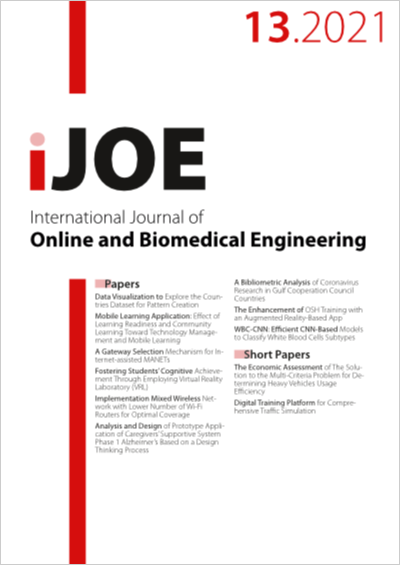Analysis and Design of Prototype Application of Caregivers’ Supportive System Phase 1 Alzheimer’s Based on a Design Thinking Process
DOI:
https://doi.org/10.3991/ijoe.v17i13.24979Keywords:
Supportive system, phase 1 Alzheimer’s, design thinking processAbstract
There are 7 million Alzheimer’s patients in Thailand, and 10% of people of 65 years of age or more are in the early stages of this pernicious disease. Alzheimer’s reduces the quality of daily life in several ways, as well as having a negative impact on the work performance of the patient’s family. Alzheimer's’ patients cannot receive proper care at home, despite the good intentions and efforts of family members, but this is the only option available to many families due to the cost of care in an external setting. The tendency for Alzheimer's patients to wander away from home and become lost is even more problematic for their families and this tendency is estimated to worsen as time goes by. Therefore, the purpose of this research is to alleviate the concern of families by preventing their loved ones who are suffering from Alzheimer's from wandering away from home and becoming lost by designing a prototype system that can track and monitor their movements.
Design thinking was used in this research as a creative problem-solving approach to produce an application with the core functions of tracking and monitoring the movement of Alzheimer's patients. The application’s accuracy was validated by a scenario test, the results of which were discussed based on user feedback.
Downloads
Published
How to Cite
Issue
Section
License
Copyright (c) 2021 Chalermpon Kongjit, Prem Tuntisak

This work is licensed under a Creative Commons Attribution 4.0 International License.



